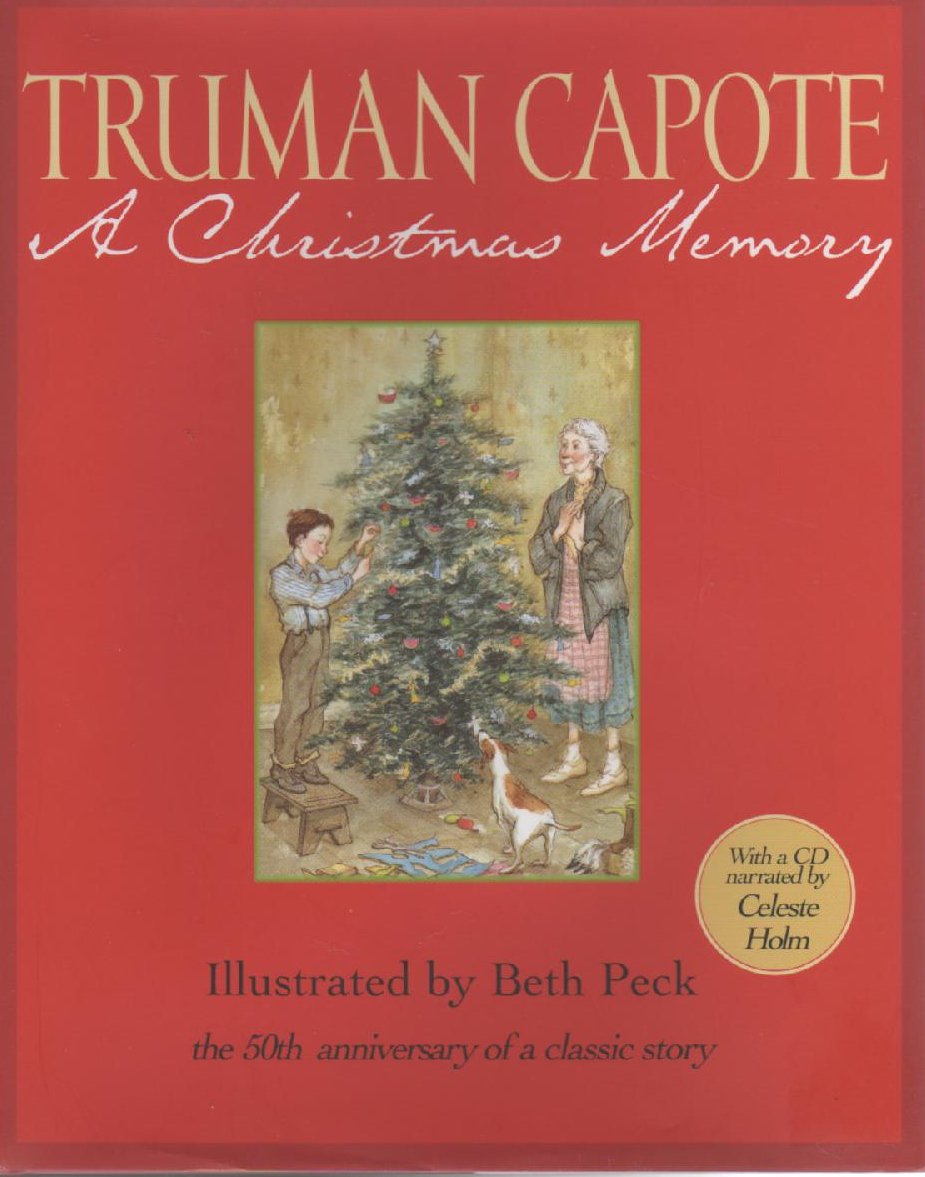

“Many things that end up” being meaningful, writes social scientist Joseph Grenny, “have come from conference workshops, articles, or online videos that began as a chore and ended with an insight. You can find “A Christmas Memory” in a Modern Library edition of Capote’s collected holiday tales: “A Christmas Memory, One Christmas, & The Thanksgiving Visitor.”Ībout a year ago, I happened upon this statement about the Monitor in the Harvard Business Review – under the charming heading of “do things that don’t interest you”: Just today the fireplace commenced its seasonal roar."

A great black stove is its main feature but there is also a big round table and a fireplace with two rocking chairs placed in front of it. Consider the kitchen of a spreading old house in a country town. A coming of winter morning more than twenty years ago. The opening of “A Christmas Memory” starts the holidays as decisively for me as each year’s first strains of “Jingle Bells”: Sook’s search for whiskey to season her fruitcake is, in Capote’s telling, a jewel in itself. The story unfolds in Capote’s deeply poetical style, and within this heart-tugging tale of Buddy and Sook’s inventive efforts to make a memorable Christmas in a hardscrabble household, there’s plenty of humor, too. Capote’s story recounts the deep friendship between the young Buddy and Sook, a childlike older cousin who becomes his surrogate caregiver. In a season too often focused the latest toy or gadget, Capote’s lightly fictionalized tale of his own childhood on a Depression-era Alabama farm is a powerful reminder that the greatest Christmas gift of all is simple human affection. But given the chance to return to Barbados? Yes, please! Next time I travel to an English-speaking country to report, I know my expectations won’t be so idealized. But, ARE you Bob?”Now back in my adoptive home of Mexico, I’ve finished writing my stories from Barbados, one of which you can read in today’s Daily about the innovative and growing sport of road tennis. I learned to love local turns of phrase, like “yes, please,” which was doled out in situations where a simple affirmative just wouldn’t do. “Is the restroom over there?” “Yes, please!”“Are you Bob?” “Yes, please!” “. When I was told, “That would be right,” it wasn’t a use of the conditional as I first understood it, but somehow a gentler way of telling me something was correct. I was thrilled to report in Barbados last month for all the expected reasons (weather, beaches, food) and a slightly less conventional one: This would be my first time reporting a story entirely in English in more than a decade.In the lead-up to the trip, as my anxiety grew over driving on the left side of the road and making sure I had all my interviews confirmed, I comforted myself with the notion that doing something in one’s native language inherently makes it easier.Of course, I was wrong.Between Britishisms and Bajanisms, I frequently found myself asking, “What?” There were interviews where I even considered inquiring if the person spoke some Spanish.But, like any language, it only took a strong dose of humility – and tuning my ear to what was initially a linguistic puzzle.


 0 kommentar(er)
0 kommentar(er)
